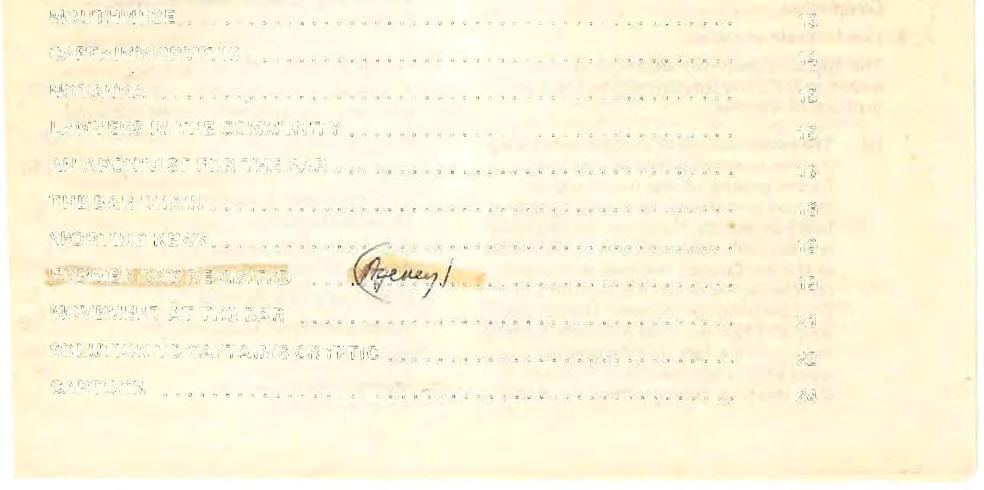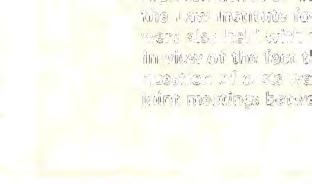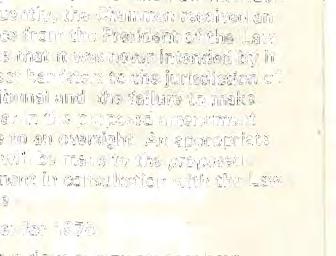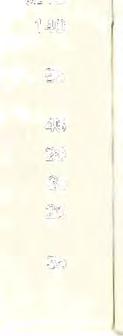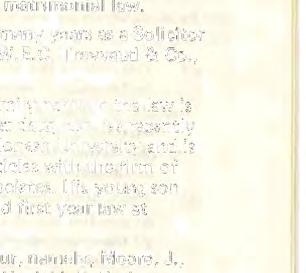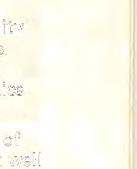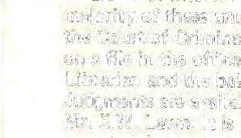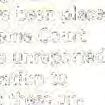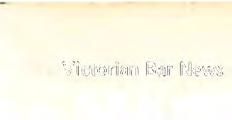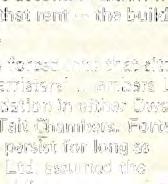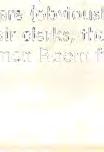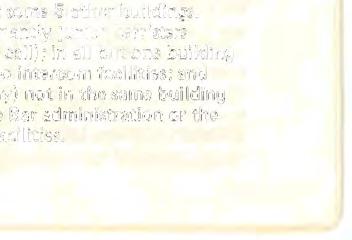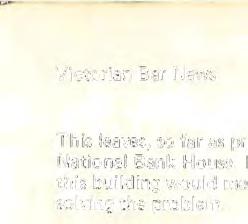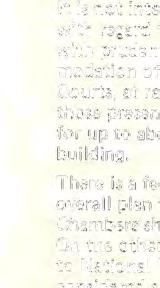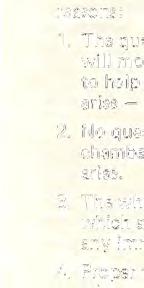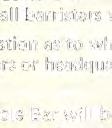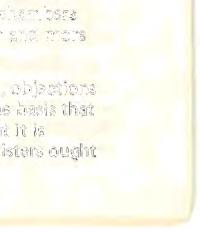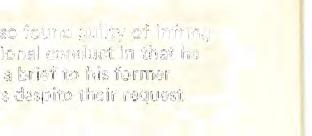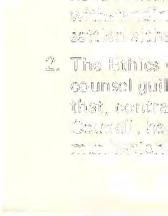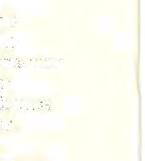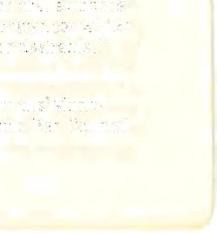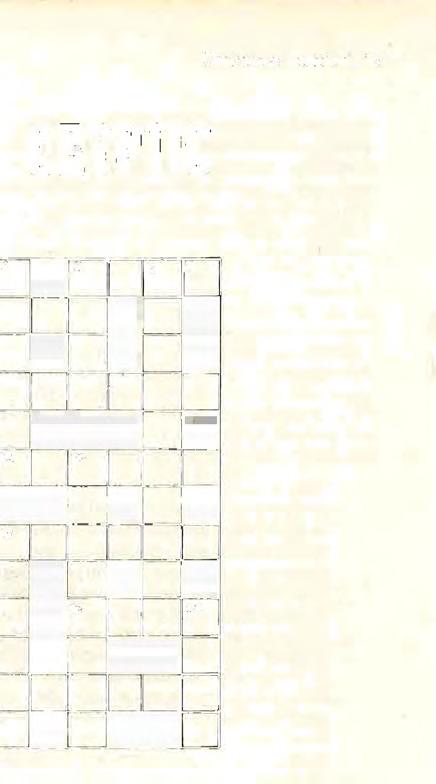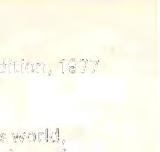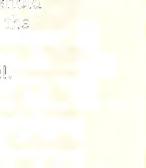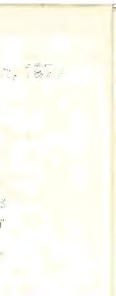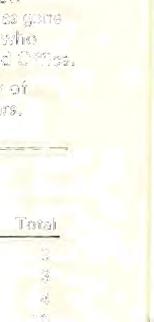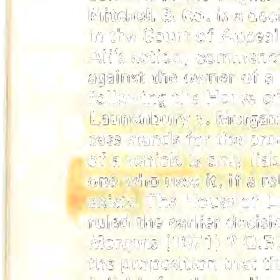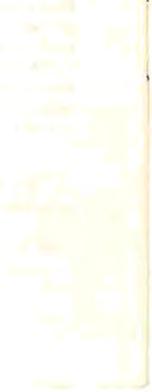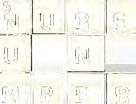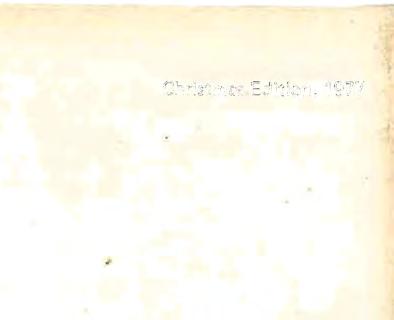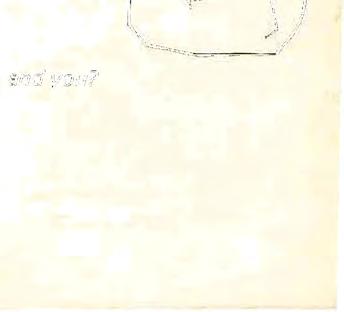MOUTHPIECE
CRIMINAL MOORE
Committee Committee
(Vice-Chairman);
held in conspace in appoint the to its negotiations retained advise on headed Berkeley , with power investigate and report to the Bar Council on the Capital alternative accommodation Bar. been received from that proposals proposals were recently subGovernment by the Law Institute of Victoria.
Practice Act aimed at constituting a Disciplinary practitioners, its Vice-Chairman members of the Bar Attorney-General suggestion. Discussions with representatives Subsequently, the Chairman received assurance Institute to subject that Tribunal that clear was due change amendment Institute
The establishment of a single costs fixing Authority which would be empowered to fix the amount of fees that could be charged lawfully by members of the Law Institute and the Victorian Bar respectively. this proposal came to the notice of Bar Council discussions between representatives olthe Bar Council and the Law Institute followed Discussions with the Attorney- General. that the general was being discussed in between the Bar and the
The Dinner
In view of the been made in relation to the venue and quality of the 1977 Bar Dinner, the Bar Council has resolved to hold that function on 13th May, 1978 at the Leonda Function Centre, Hawthorn.
5. Annual Subscriptions
The annual subscriptions for the year 1977/78 have been fixed at the following rates.
Queen's Counsel $210
Over 10 years' standing
Over three years but under 10 years' standing
Over one year but under three years' standing
Under one year's standing
Interestate Queen's Counsel
Interstate juniors
Solicitor-General and Attorney-General
BARRISTERS' COMMITTEE
The Committee recently elected comprises:Hillman; Watkins; Riordan; Beder; Jacobsen; Wodak; Turner; D.B. Smith; McCabe. to considered by the incoming committee include the proposed move to Capital the collection of overdue fees and the Magistrates' Court Fees.
wishing the Committee to investigate any Significance to Young Barristers are approach members of the Committee
MR. JUSTICE TREYVAUD
William Treyvaud was on the 27th day of October, appointed a Justice of the Family Court. His appointment culminates an industrious, intensive skilful career at law.
was educated at Glen Iris State School, Geelong College, and Melbourne University. Whilst University he was the law students' representative on the Stujents' Representative Council, and participated in sporting and other Club activities.
Shortly after serving his Articles of Clerkship Melbourne with the firm of Messrs Rylah & Rylah, he and his family moved to Geelong. Within a year he had joined the firm of Crighton, Coulter & Co., and been admitted into partnership. then practiced as one of the princi pal the firm, the name of which became Coulter, Treyvaud & Gazio. During his eleven years in practice at Geelong, there developed an acknowledged respect for his industry and his capacities as a Solicitor, a respected advocate, and an able negotiator.
Geelong continuing Club. gentle interest food, wine and conversation. pursue these interests
In 1963 he returned to family. Upon his admission he promptly developed far and wide. Gradually advocacy the running down work and matrimonial law.
His father practiced under the firm name of W.E.C. in Melbourne.
The continuity of family assured. His second eldest graduated law from Monash presently serving her Articles Kenneth D. Opat Associates. Phillip just completed Monash University
Of there four, Ross, Lewis, G., and Kozicki, P. Each acknowledged opportunity given them: to his interest, his patience, capacity gently to coach practice at the Bar.
His industry, broad experience, incisiveness thought and widely cast skills will serve him in the work to which he now moves. Bar congratulates him and wishes him an extensive and satisfying career in his new office.
UNREPORTED JUDGMENTS OF THE COURT OF CRIMINAL APPEAL
As set out in the Annual Report the Victorian Bar Council 1976-77 a scheme has now been implemented to facilitate the perusal of all unreported Judgments of the Court Criminal Appeal. As from the 1st of December 1977 comprehensive the Library on the 13th floor covering every un-
Judgment of the Court of Criminal Appeal since the 1st of February 1977 which would be of interest to practitioners. The unreported Judgments of Criminal Appeal have been placed office the Supreme balance of these unreported available on application is believed that reported will be of vital interest to those who practice in any part of the criminal jurisdiction. Some of the more interesting points referred to in these unreported Judgments which can be discovered by searching the Index in the libraryare:-
THE NEW SILKS
(a) The role of the prosecutor in the sentencing of an accused. On an appeal by the Attorney General the Full Court considered the effect of the failure of the Crown to object to a non-custodial sentence.
(b) The question of intent and the effect of alcohol and drugs. The application of the decision of the House of Lords in Majewski has been considered.
(c) The present of the felony murder rule has been discussed.
(d) The defence of provocation and the cumulative effect of successive events which are relied on as provocative has been considered.
(e) The Court of Criminal Appeal has held that the Applicant's demeanour during trial and the way in which he has conducted his defence are relevant matters to questions of sentence.
(n Observations have been made about the duties of the authors of pre-sentence reports as to what material should not be included in such reports.
(g) The discretion of a Judge to prevent cross-examination of an accused as to the truth of a confession on the voir dire has been considered.
The Bar congratulates the following members whose appointment as Oueens Counsel was announced on 23rd November, 1977.
William Bernard Frizzell
Francis Walsh
Leonard William Flanagan
William Michael Raymond Kelly
Garth Samuel Harold Buckner
John David Phillips
Allan William McDonald
Brian William Nettlefold
John Michael Batt
John Rupert Hanlon
David Myles Bennett
Edward Francis Dunphy
Neil Harry Mark Forsyth
These points demonstrate the usefulness that these unreported Judgments will have to practitioners generally. Christmas Edition,
Gerald Edward Fitzgerald, O.C. (ald.)
Brian John Herron, O.C. (N.S.W.)
500TH ANNIVERSARY BIRTH THOMAS MOORE
"SUDDEN ARREST
IMPRISONMENT WITHOUT TRIAL FREEDOM IF THE PRISONER RECANTS EXECUTION IF HE REFUSES"
"The old familiar pattern of the individual against the State. As familiar today as in Tudor England when Sir Thomas Moore followed his conscience and defied King Henry VIII.
Modern World it is repeated with Decides" - Thomas Moore's from - Geoffrey was England He the Oath though and eminence doing so. Tower he waited uncertainty, finally death and executed.
Sir Gregory Gowans, formerly Supreme Court of Victoria as Chairman, is organising a celebration of the 500th of the birth of Thomas Moore which 6th February, 1978.
By courtesy of the Chief Justice and the Church Committees responsible for the religious observances for the opening of the Legal Year there will be special references to Moore at the usual Church Services mark this occasion.
Gregory's Committee is also arranging for celebrations to include a Commemorative be held on Friday the 3rd February, 1978, the Great Hall at the National Gallery dinner an Australian, well Scholarship and Public Eminence, Address on Thomas Moore. It is cost of the Dinner will be person. To enable the the degree of interest and
to facilitate arrangements generally those desire to attend the dinner are requested apply for an application form which from Michael O'Sullivan, Q.C., Room or Secretary, Room
ACCOMMODATION
The proposed move to National Bank House (Capital Towers). Two views.
FOR: VIEW ONE (by a junior member of Bar Council)
In 1972 a dozen or so junior barristers arranged chambers for themselves in a building "Henderson House" Tait Chambers in Lonsdale was and the quality the accommodation was commensurate with building was in short, a hovel.
These barristers were situation by the inability Barristers' Ltd. to provide accommodation Owen Dixon Chambers or Tait Fortunately, the situation did not Barristers' Chambers responsibility for providing accommodation those who could not be accommodated in Owen Dixon Chambers or Tait Chambers. consequence, were leased number other buildings and sub·let to the barristers requiring accommodation.
Today, the situation is that of 538 practising barristers for whom Barristers' Chambers Ltd. provide accommodation, 220 are housed buildings outside Owen Dixon Chambers leased by the company. Those 220 barristers scattered amongst They predominantly (less than years' (Tait) they have no they (obviously) as their the Common facilities.
Those barristers are now isolated from the main stream of the Bar and are as a group, fragmented Their circumstance is something that was not foreseen when the Bar Council initially decided to ask Barristers' Chambers Ltd. to lease space in outside bu ildings - it is only the unprecedented growth of the Bar in the last 2 years which had highlighted the situation.
As a result, barristers in those buildings do not have the day-to-day contact with senior barristers as their counterparts did in the days of abundant space in Owen Dixon Chambers and are consequently denied the development of acquaintance and sense of community with one's seniors, and the easy access to advice and reassurance that was the lot of the ir predecessors
This situation has a number of effects : firstly, many of those barristers personally feel out of the main stream of the Bar or at least disadvantaged in becoming part of it; secondly, and related, they sense that those chambers are seen by the profession generally as junior barristers' chambers with consequent disadvantage to the type of work that they as occupants of those chambers can attract; and thirdly, apart from what is felt or sensed by the tenants, it is in fact creating a situation where junior barristers, embarking upon their practising careers, are having the development of their skills and competence positively hampered by their lack of access to and contact with the guiding hand of experience.
That these are all undesirable effects from the point of view of the Bar's continued existence as an independent entity should be self-evident - if the middle and senior juniors of tomorrow cannot m ix with the middle senior juniors and silks of today, they will gain nothing from being members of the Bar.
Furthermore, it is fatuous to suggest that the solution lies in the juniors simply walking across the road, making a telephone call or knocking on any door in Owen Dixon Chambers. The problem is a real one, it is felt by those outside Owen Dixon Chambers and has been felt by those who have practised for some years in those outside chambers and then had the opportunity to obtain chambers in Owen Dixon
Th er li b dly, i modating en e from limited mov n D to n move
If the problem is acknowledged by the Bar as a whole and the responsibility to overcome it is accepted, there are only 2 ways in which it can be solved with any lasting effect:
1. For the whole Bar to move to a new building sufficient to house the whole of the existing Bar and to allow for say the next 10 years expansion at the very least.
2. For the Bar to acquire accommodation in one other building sufficient to house number of barristers equal to the number who presently have chambers outside Owen Dixon Chambers and to allow for (in that building and/or Owen Dixon Chambers) expansion for a similar period to that suggested in 1
In implementing either of these alternatives construction of new buildings by the Bar not be possible in the present climate either economically or organisat ionally due to probable desire of the Bar to limit its outlay any such project. The purchase of an existing building to implement the first alternative would not be possible for similar reasons
The purchase of a second existing building to implement the second, may be more feasible financially. However, the obvious examples, Four Courts Building and Hume House, would not meet the problem - neither could house the present number of barristers outside Owen Dixon Chambers let alone allow for any future expansions. Figures on the maximum number of barristers who could be housed in Goldsborough Mort bu ilding (purchase and refurbishment of which is another alternative) are not as yet precise - the indications that it may house a number equal to all presently outside Owen Dixon Chambers would not allow for any future expansion.
present possibi lities go, It would appear that meet either means of
is intended to canvass specific proposals to that building, save to say that prudent and hard negotiation, accomof a high quality, proximate to the rates of rental competitive with presently being paid could be obtained about 750 barristers in that
feeling at the Bar, that in any for accommodation Owen Dixon should be retained for chambers. other hand, move of the whole Bar Bank House should be seriously considered as solution for the following
question which barristers move Owen Dixon Chambers help achieve the seniority mix will not will move.
that our requirements of the Courts are greater.
6. The renting of all accommodation may permit a reduction in the capital commitment required to be made by barristers for their accommodation to Barristers' Chambers Ltd. and the substitution of this with a current outgoing type commitment with advantages of greater tax deductability.
7. Owen Dixon Chambers could be sold or refurbished so as to provide income and continued capital gain potential for the Bar .
AGAI NST: VI EW TWO
The Editor, Victorian Bar News
question which are the princi pal chambers headquarters of the Bar will
whole be housed in premises are modern and are not faced with imminent obsolescence problem.
terms in the lease can achieve adequate security of tenure for the foreseeable future and protection from prohibitive increases
5. accommodation does not compare unfavourably with owning one's own accommodation, when one takes into account the depreciation of the asset and the sort of maintenance an owner must face up to. Indeed it is surprising so many barristers lack confidence in their profession's abi lity to compete on market terms (assuming they will have to) for accommodation with other businesses professions. Our solicitor colleagues certainly don't appear to share our pessimism in arranging their own acornmodation, though it must be conceded
At your request I have reduced to reasons for opposing the move to on the terms proposed by Berkeley recent General Meeting of the Bar.
I leave to one side, although I do not underestimate, fears in relation to the suitability of building and the question of whether not best possible terms have been negotiated; my objections are more fundamental and relate the basis upon which chambers ought be available to Counsel by Barristers Chambers
In the first instance I think I should make that I am sympathetic to and support views expressed at that General Meeting, that the corporate entity of the Bar ought to be preserved, that economic barriers to going to the Bar be reduced to a minimum and that it is desirable that barristers should be 'mixed' in their modation so that the more junior members Bar can obtain benefit from having chambers situated in close proximity to senior experienced barristers.
At the same time I reject as illogical, to barristers owning chambers on the of itself, undesirable and that 'unprofessional'to suggest barristers
to organise their affairs on a commercial basis with a view to minimising the crushing burden of income tax. The bar must be unique in its 'head in the sand' attitude towards arrangements common outside the Bar by the use of service companies, trusts, and the like to substantially decrease the taxation burden and to enable capital assets to be acquired.
My essential objection to the proposed scheme is that it perpetuates the present system whereby barristers have no option but to lease chambers and prevents taking advantage of legitimate commercial arrangements prevalent in other professions. I acknowledge that the ability of barristers to purchase their own chambers and their need or wish to do so varies according to one's own financial circumstances and one's position at the Bar. No doubt very junior barristers would wish to lease accommodation and I see no reason why they should not be assisted to do so, but I see no reason why more established barristers who wish to protect their future and lessen their taxation burdens by the use of family trusts etc., to acquire their own chambers should not be able to do so. I see no reason at present why the two viewpoints cannot be reconciled and why a flexible system designed to cope with both cannot be achieved.
I propose that the Bar Council should thoroughly investigate the prospect of a scheme whereby in the first instance all chambers shou Id be owned by Barristers Chambers Limited, but that Counsel should have the option (exercisable at any time) to either purchase or lease those chambers. The legal viability and the economics of such a proposal obviously required detailed con· sideration.
The projected move to Capital Towers does not take into account the above suggestions and commits the Bar for many years to lease chambers.
I am opposed to the sale of Owen Dixon Chambers. It does not appeal to me as a good reason that the Bar's sole valuable asset should be sold because it can no longer accommodate the whole Ba r. When it was f irst built, it was


more than adeq and followin g again The c whole Bar is beca and the growth of the Bar. This is a problem which will face the Bar for ever and can never be solved. Even if one were to buy the whole of Capital Towers, the day would come when the Bar would outgrow it. To lease or purchase a substantial part of Capital Towers for the whole Bar only puts off to a further date the recurring problem with which we are presently faced . It is no more than a temporary solution and surely the Bar cannot move as a body every fifteen or twenty years. Further, the arguments advanced when Owen Dixon Chambers was only an ideas about the advantages which would tlow to the Bar from owning its own chambers have been overlooked. They need not be elaborated but are surely . as true today as they were then. If an attempt is made to sell Owen Dixon Chambers, it unlikely that a substantial price wi II be obtained and very little benefit will have been derived from owning it. Whilst rents in Owen Dixon may have been less than commercial the first instance, that is no longer the case because of the expensive nature of leased accommodation outside Owen Dixon. If it were not for that accommodation, rents in Owen Dixon would be substantially less. The criticism the building and the projected costs for refurbishing it are, I believe, unfounded and exaggerated.





In my opinion, Owen Dixon Chambers is not nearly as bad as it is painted and I doubt very much the accuracy of the figures put forward. In any event any building taken as an alternative will require the expenditure of sums for maintenance from time to time as it grows older. Owen Dixon Chambers is centrally located, accommodates a large number of Counsel, has in it a number of very excellent chambers, and substantial facilities for the Bar as a whole including a library, common room, eating facilities and accommodation for the Bar Council and its secretariat. Why this should all be disposed of because of some hope that it can be replaced by some better qual ity accommodation (not owned


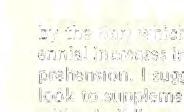



which will be subject to triin rent is beyond my comsuggest that the Bar should supplement Owen Dixon Chambers with a building which might well accommodate something like the same numbers. If a satisfactory agreement can be reached, I would not object to space in Capital Towers being either purchased or leased w ith an option to purchase
two essential issues to be is the economics of any is the philosophical or for it. As to the former, I
have been properly investiadequate alternatives been conlatter, I think it is foolish to undesirable that Counsel should own whole Bar has to be one building. The Bar has and I believe, practical Chambers that I believe that unless who wish their into account, those who inflexible arrangements will opposite of that which The Bar is more likely to split if arrangements accommodating all taken into account
JEFFREY L. SHER
same counsel also ing a rule of professional had failed to return instructing Solicitors that he do so.
In view of the circumstances in which these offences were committed, counsel cautioned by the Committee pursuant Rule 32A (f) (3) of the Bar Rules .
THE MYSTERIES OF SILK
The silken season is upon us again. Thirteen tiros are now to be heard rustling through Courts, accompanied by juniors only two as grand (or even less grand by negotiation).
Not until 1863 were Queen's Counsel in the colony of Victoria, years the first appointments in New South Wales. Today they number 73, including interstate practitioners. But what is it really all about?
1. Application for Silk (Those have it or think they never will, can skip
The grant of Letters Patent to a barrister Victoria is within the prerogative of the Gvvernor in Council. He makes the appointment u Jjon the recommendation of the AttorneyGp'1eral made upon the nomination the Chief Justice (Vic. Govt. Gazette No. 97 21/1970 p3419).
RECENT ETHICS COMMITTEE RULINGS
Ethics Committee recently resolved that facie once a brief is delivered to counsel, entitled to mark a proper brief fee notwithstanding that the matter is subsequently either by him or between the Solicitors . Committee has found a member of guilty of a breach of Council Rules in contrary he munication
In 1964 Sir Henry Winneke directed that applications would be received only in September (rather than at any time as formerly). The present Chief Justice in 1975 directed that applications would be received only in August. tailor something of a seasonal bulge Christmas. Applicants must write Justice setting out their full name, date of admission to practice in the Bar September and applicants Justice in
recommend their appointment.
Successful applicants are required to send letters to all counsel on the roll senior to themselves including Queen's Counsel, advising that they' have made an application. Historically these letters warned juniors of greater seniority of the application, enabling them to make an application themselves if they wished. Thus in England the tradition was that letters were not sent to Queen's Counsel. There the custom was discontinued entirely in 1961 In Victoria it remains only as a courtesy to those senior on the Bar roll.
Prior to the end of October the applicant informs the Chief Justice that he has sent his letters. The list of nominations is submitted in November, in which month the Letters Patent are granted and the fact of such grant Gazetted. The new silks appear before the Full Court on the first sitting day in December .
2. Criteria for Appointment
The basic criterion for appointment of silks is eminence in the profession. The present Chief Justice is understood to apply the principles laid down during the time of Sir Edmund Herring. These principles were set forth in a memorandum of that Chief Justice as follows:
"I think I should point out first of all that the granting of silk is never a matter of course. It is primarily the exercise of a judicial function, and one that is always exercised with consider· able anxiety. For, as was pointed out by the Privy Council in (1898) A.C. at p.252, the office of Queen's Counsel is 'a mark and recognition by the Sovereign of the professional eminence of the Counsel upon whom it is conferred'.
"Consequently personal considerations cannot enter into the matter. The matters the Chief Justice has to consider are all those from which it may be determined whether the applicant has really attained eminence in the profession that is worthy of being recognised by the Sovereign. Such matters include duration of the applicant's practice, the income derived therefrom, the nature of the practice, the
Courts in which it is carried on, the importance of the cases handled, whether the applicant commonly appears with a junior, the capacity to conduct cases in Court and so on."
It need hardly be said, therefore, that extraneous matters such as the applicant·s political affiliations have no place in the decision. See 44 ALJ: 302 and 318.
3. The Privileges and Practice of the Silk Precedence among Queen's Counsel is determined by Order in Council made on the 11th October 1955. The Solicitor-General ranks first, and after him the silks in order specified in the Order in council authorising their appointment. For practical purposes, this precedence is governed by the date of the 3rant of the Letters Patent and, among those whose letters were granted on the same day, in the order specified in the Letters themselves
The work which English silks may undertake is summarised in Boulton, Conduct and Etiquette at the Bar (4th edition 1965) p.64· 66. By the Bar Council ruling of March 1957 these propositions are equally applicable to silks in Victoria.
"A Q.C. should refuse all drafting work and written opinions on evidence, as being appropriate to juniors only; but he is at liberty in consultation with a junior, to settle any such drafting and to advise on evidence."
"Where papers have been delivered simultaneously to both a Q.C. and junior counsel, the Q C. should not advise except in consultation with the junior, but where no papers have been delivered to junior counsel, a Q.C. may advise in conference or give a written opinion without the assistance of a junior."
"By a general dispensation granted in 1920, a Queen's Counsel can now appear in a case against the Crown without a licence from the Crown."
This last provision abrogates the old rule that silk may not appear against the Crown since he is, in theory at least, one of Her Majesty's Counsel.
appointment is made by the Governor rights
Victorian silk appears interrank and privileges of a only, unless he has been granted jurisdiction.
the Junior Bar
The new Silk takes precedence over all junior whatever may have been his previous
exception in England to the general counsel may recommend another to a solicitor-client is found in Boulton at page 63:-
to a barrister recommendhis leader or junior, but his opinion."
old custom is followed recognising the services appeared with him by the be a reflection of the bar, or possibly of its bags now rarely seen
nineteenth century. observation challenged by Raymond (1976) 512. But it appears clear that not until did the recently formed Bar Committee ulate the rule that a Queen's Counsel not appear for the plaintiff in a civil without a junior. As late as 1889 was sidered proper for a silk to appear alone a plaintiff in a non-jury trial: (1977) 190. The extension of the rule to appearances in any court was not formally adopted in England until 1935. Before that date it was described as "the usual practice" for silk insist on a junior when appearing for a defendant.
It would seem, therefore, that the rule in England for of the nineteenth century merely adopted by various messes. immemorail in in the Norfolk Circuit mess required two where a King's Counsel appeared for the or prosecutor.
parsimony Ed.) Rule
Bar 1884, the adopted included the
"The Attorney-General, Solicitor-General, or Counsel may not appear without a junior on the tril of any action or hearing of in judge's chambers, and may not settle, otherwise than in consultation junior, pleadings, affidavits, conveyances, legal documents of any kind, appear on any rule, motions or opposed or unopposed, or on any without or with a junior."
respects the Victorian Bar followed of the General Counci I of the Bar
recent report in 1976, the English and Mergers Commission observed whereas Office of Queen's dates ti;ne James I, the two rule such, only in the last
In March Council stated terms
"( 1) It of Victoria follow regard to Counsel by Bar England applicable conditions in Victoria and so far as are contrary to any established practice the Victorian (2) In any Court, including the Coroner's Court, Queen's Counsel other than Crown Prosecutors must appear with The same rule applies to the Commonwealth dustrial Commission, the Workers Compensation Board and Boards of Review. Before other tribunals which are not courts, Queen's Counsel has a discretion to appear without a junior. In the exercise of this discretion Counsel should take into account whether oral evidence is to be heard or any other circumstances may make the briefing of a junior
So much for the past.
from Commission
Abrogation of Rules
All existing rules of professional conduct and etiquette restricting the right of Queen's Counsel to accept instructions to appear as an advocate or to do any other work without a junior are ab rogated and are replaced by the following rules.
3 Appearance as an Advocate
(l) Queen's Counsel may accept instructions to appear as an advocate without a junior.
(2) Unless the contrary is stated when instructions in any matter are first delivered to Queen's Counsel, he is entitled to assume that a junior is also to be instructed at the hearing.
(3) Queen's Counsel should decline to appear as an advocate without a junior if he would be unable properly to conduct that case, or other cases, or to fulfil his professional or semiprofessional commitments unless a junior were also instructed in the case in question.
(4) Paragraph (3) of this rule shall have effect notwithstanding any obligation which requires counsel to accept a brief in a forum in which he professes to practise
4 Contentious Written Work
Queen's Counsel should not without a junior settle pleadings or draft such other documents necessary for the conduct of contentious proceedings as are normally drafted by junior counsel provided that Queen's Counsel may without a junior settle pleadings or draft documents for use in proceedings in which the Queen's Counsel has agreed to appear as an advocate without a junior."
In Victoria on 31st July 1975 the Bar Council ruled that it was not improper for junior counsel by special arrangement prior to accepting a brief and after consultation with his leader to accept a fee other than two th irds of the leader's fee, provided that such fee was not less than the normal or recommended junior fee The requirement of a "special arrangement" means
that in most cases the traditional survive. It remains to be seen whether this ruling, even in such an attenuated form would offend the Trade Practices Act
The two th irds ru Ie has gone, in theory both in Victoria and in England. In New Wales it is presently under scrutiny by Enquiry into the legal profession.
There is probably no valid reason for the abolition of the office of Queen's Counsel. provides a sanctuary for the busy junior to avoid the burden of paperwork. It is appropriate to senior barristers in the eyes the profession and the community at large It enables those who wish it, to restrict their practice to heavy and difficult cases w ithout weakening the cab-rank pr inciple.
But the established pattern of the practice a silk is one which the Bar must stand ready justify.
6. Excursus
An interesting note on the dress particular the "powder rosette" appears in 28 A.L.J. 237. It has in this State that the rosette is worn our early links with the Irish Bar. indication in the A. L.J note that the wear ing of the rosette is an Irish tradition. states, inter alia, of the English was, apparently, originally worn powder from the wig getting on the coat (it) is not worn when a gown is worn, but only when no gown is worn , as example at a Royal Court ". Further appears that English si Iks "for reasons of economy " wear their stuff gowns except in the House Lords when they also wear a full bottomed A perusal of recent price lists for robes leads one to ponder how many of our men, for similar reasons of economy, may be no more than artificial si Iks.







Those who have had time to read to this point may desire to wander further down the by-ways of legal history and dress. The once great order of serjeants-at-law requires an article to itself But serjeants, like silks, were known costume being described as "of the the coif". The coif was a patch on








(Jowitts Dictionary of English Law 1959 p.402) possibly derived from a skull cap worn in earlier times. The degree of serjeant was never abolished. Itdied outwhen, after 1st November, no longer necessary to be a serjeant to become a judge of the superior courts of common law. A legacy of the order is the custom of Judges calling each other "Brother". An attempt was made in 1834, by warrant under the hand of the King, to deprive the serjeants of their exclusive right of practice in the court of Common Pleas. This was challenged, after a hesitation of some years, and the report of the decision upholding the privileges of the serjeants, which appears in 6 Bing (N.C.) pp.235. ft, bears reading. The following appears at p.238.






"We, therefore, th ink ourselves justified in saying that from time immemorial the serjeants have enjoyed the exclusive privilege of practising, pleading, and audience in the Court of Common Pleas. Immemorial enjoyment is the most solid of all titles; and we think the warrant of the Crown can no more deprive the serjeant who holds an immemorial office of the benefits and privileges which belong to it, than it could alter the administration of the law within the Court itself. The rights and privileges of the serjeant, and rights and privileges of the peer of the realm, stand upon the same foundation, immemorial usage."
A footnote to the report reads:
"During the delivery of the above, a furious tempest of wind prevailed, which seemed to shake the fabric of Westminster Hall, and nearly burst open the windows and doors of the Court of Common Pleas."
A sign of Divine displeasure which might be variously interpreted.
MOUTHPIECE
"Bristers", observed Pooh, "are very strange animals."
"Are they dangerous?" asked Piglet, "Not", he added quickly that I care. It's only that you want to know in case of meeting one."
"They are only dangerous when well paid", said Pooh, "or if someones tries to disturb their lair. Then they get all stirry and pass motions all over the place."
"Is that dangerous?" said Piglet. "Well it doesn't get anything done," said Pooh. "But it is a bit untidy especially if you happen to be standing under their tree."
"Oh, they live in trees?" said Piglet. "Sort of trees" said Pooh. "But then again sort of layer cake beehives. They live in cells piled one on top of the other in tall buildings and no one is allowed to live with another in his cell unless very young. They like to be all piled up together; they say it makes them feel more of a Brotherhood."
"That sounds like ganging up said Piglet who had been reading about Scicily. "Why do they want to be a Brotherhood?" "They say" said Pooh, that they want to train their young and to be friend Iy to each other. But it seems to methey all want to keep an eye on what the others are doing."
"What are the others all doing? asked Piglet. "They talk a lot about what they think they think, and they think a lot about what they think they think. Butthey don't often think a lot about what the others who are talking about what they think they think are thinking they are thinking" said Pooh.
"Oh" said Piglet.
"That's because they all think that their own thinks are right and everyone elses' thinks are wrong; which is a waste of time" said Pooh. "Yes" said Piglet.
CAPTAIN'S
ACROSS
5. Halt from masculinity (4)
7. Notice of arrival of goods by train (6,4)
8. His Majesty the judge (4)
10. On and On like the babbling judging (8)
11. The first rower comes last (6)
12. Holding land from a soup dish (6)
14. The ruling hand rocks it (6)
16. Unusually large and rising ball (6)
17. Colour slightly (8)
19. Open Indian prince (4)
21. Brought into evidence (10)
22. Moiety (4)
DOWN
1. Slope for holding money (4)
2. Circumviation (4,4)
3. Maybe it appears (6)
4. To assess the legal price (2,4)
5. Let out the secrets (4)
6. Judge born 11/1/1911 (9, 1)
9. Praetor's possession
13. Very many (8)
15. doesn't assist the volunteer (6)
16. Native of French coastal
18. Serjeant at law's white
20. Assistant from a thought
"Sometimes some of them think they think would be a good idea to move trees", said "or beehives. Then all the others jump up and down on the spot, pass motions, and shout 'Silly idea, silly idea' in loud voices." "Is it a silly idea?" asked Piglet. "That" said Pooh wisely "all depends on what you think ."
D.G.H.
(with the usual apologies to A.A.M. who probably doesn't care anyhow)
NOTANDA
Well known reformed nicotine addict and blue water buff Barton Stott recently entered into a competition sponsored by the manufacturers of "Salem".
Rumour has it that, as part of the drying out process, he used to collect empty packets and was therefore well in front of all competitors befo re he sta rted
His jingle, of course, won the prize. Listeners will doubtless be seduced by its charm on the media next year.
The reward for this skill exercised in the interests of orderly marketing, was a trip for two to the U.S . of A. There to watch the procession in honour of that other triumph of U.S. technology - the twelve metre yacht.
Five per cent is believed to have earned Kevin Foley a free ride on the bus to Tullamarine to see him off.
Stott maintains that he refused the sponsor's offer of an unlimited quantity of its products.
Notwithstanding the result of the races he was seen laughing on his return to the Ballarat circuit.
LAWYERS IN THE COMMUNITY
The First Report of the Victoria Law Foundation's recent survey of lawyers in the Victorian community is nearing completion and should be published before the end of the year.
It is proposed that this First Report should cover the following principal areas:
lawyer's social characteristics (age and sex distributions; social background; ethnic background; current income; educational background)
roles of lawyers (current range of occu· pations; work satisfaction; add itional work roles; occupational mobility; "dropping out")
problems of legal practice (areas of law; clients; work loads)
opinions on legal education and practical train ing
opinions on areas of special concern to the profession (specialization; advertising; fusion; efficiency; socio-Iegal needs)
lawyers and their professional associ· ations.
The detail of the Report will be settled in consultation with the Advisory Committee, which includes representatives of the Bar Council and the Law Institute.
The response to the questionnaire was most encouraging. The over-all response rate came close to 70%, which is regarded as excellent for a project of this kind. Moreover, studies have shown that the respondents can be regarded as representative of the group as a whole. Hence the findings of the survey can be accepted as reasonably reliable for the total lawyer population.
Analysis of the vast amount of data collected is of necessity slow work, even with the assistance of Melbourne University's computer. This First Report not be the last, although it is likely to be the most basic. Pending its publication, preliminary drafts of analyses in particular areas are being made available to
institutions or researchers with urgent need of them, including the professional associations.
The Foundation is most grateful for the -operation it has received from the profession this undertaking .
ARCHIVIST FOR THE BAR
far as I am aware, no specific effort is made beha lf of the Bar to record and preserve the store oral and written material from days which in the memories and desk drawers its members. If someth ing is not done soon much of this precious stuff will be lost. It is time, believe, for the appointment of a Bar Arch ivist collect and collate what is available To illustrate my point : below is a valediction by Judge Stretton delivered over twenty-three years and I wonder how many members of the Junior know we once had a colleague with supreme mastery of the English language J.H. Phillips
Valediction by Judge Strenon in tribute to late Judge Book 11th' Court, June 9th, 1954
Members of our profession - we meet upon this day of sorrow to speak the name of Clifford Henry Book who was well-loved in the brotherhood of the Law For more than th irty years he lived and worked among us. So much had he become one of us that it is hard to imagine he is no longer with us
Early in life he chose the path of service to the State. As Crown Prosecutor, and later in the seat of judgment, he left no blemish on the name of the great institution of the Law which so long he served with quiet distinction His personal life was virtuous. His manner of living upon the lives of those about him as beneficent influence He worshipped his God. He did his duty. He had the g ift of friendliness
He did not reject the good things of this nor did he despise the common consolations of mankind. He saw the complexity of life clearly and he saw it whole . Clifford Book was sound man, a good man .
In his work as Prosecutor he recognised that held an unusual responsibi lity; and so was that he combined in himself the qualities of astuteness, resourcefulness and fairness which are expected of those who are appointed to that office in a British community.
All that one heard of his judicial life was good . He knew the ways of men and was not to be deceived; but his tolerance ensured that his judgment should not be impaired by unworthy suspicion or by prejudice When he sat in judg ment upon those who had offended against criminal law he faced his duty squarely. just and merciful.
His life beyond the law was church and in the brotherhood of Freemasonry he has left a name which will be held in memory.
One feels that his religion was a potent and that, because it was so, threshold of death would be, for him, the portal to poet's "white radiance of eternity".
May our good friend and brother rest well.
THE BAR DRAIN
The thought of Castan and Segal digging potatoes next year in a Kibbutz in Israel, makes wonder whether there may yet be an escape practice at the Bar other than the grave judicial appointment.
Retentive readers will recall that in June an article journal discussed the problems caused by the tremendous influx of younger
barristers. A brief glance at the annual reports show that the numbers of those signing the roll has in no way abated since then, as the following table illustrates:
Year August
Ending 1968196919701971197219731974197519761977
Number
Signing 36 30 37 51 52 39 44 73 103 59
Total in practice 302 327 343 * 396 429 444 497 558 565
* Figure not available
The figure given for those in active private practice includes all those keeping chambers in Victoria but does not include Crown Prosecutors or Parliamentary Counsel.
From year to year some balance has been preserved by the numbers of those who leave active practice for various reasons By far the most common fate is appointment to the Bench. is followed by the transfer of barristers to solicitor's branch of the profession and the third, in order of numbers, is death In all, over the last decade, 163 barristers have ceased active practice. Of these 56 became judges, 25 became so Iicitors and 19 died.
It is of interest to note that the years of greatest influx have also been the years when the greatest number left. The following table has been compi led from information gathered from varying sources showing , in the case of those leaving active practice, where each went immediately following his departure
The very great number of jud icia I appointments in the last two years is far from characteristic. Unless there is drastic change in the structure of the Courts, it is likely that in the foreseeable future the numbers becoming judges will fall back to the traditional 3 or 4 per annum. The consequence of this will doubtless be a great strengthening of the senior bar in the next decade
A surprising feature of the information in the table is the relatively small number of barristers leaving to become solicitors. It had been supposed that large numbers of counsel, especially at the junior level, would find life at the Bar unprofitable and would return to the greater security of salaried employment in Solicitor's off ices. As to the profitability of their practices, one cannot be certain . But the predicted exodus has not occurred.
The figure for death may speak volumes for the healthy atmosphere of private practice at the Bar. Or possibly, at current rates of taxation and provisional tax,death is a luxury we cannot afford.
There is no question here of an exodus of juniors.
Once at the Bar it seems it takes a rare plum to entice someone away. Or maybe we feel we are
The other figures speak for themselves. It is to be deplored that there is relatively little movement between the Bar and the Universities. A busy practice gives little time for research and examination of the broader implications of the law, the study of which would doubtless be of advantage upon judicial appointment.
In the classification "Government" there has been included a number of miscellaneous appointments such as Shore's appointment to the Patents Office, Todd's departure to the Taxation Board of Review, and the two Small Claims Tribunal Referees, Strathmore and G. Johnstone.
In the year ended 1977,5 members have joined the ranks of the "Miscellaneous" These include Neil Roberts who has become a Magistrate Hong Kong, Cahill who has become Crown Counsel in that Colony, Toohey who has to the Legal Aid Committee and Brear went tothe Fitzroy Aboriginal Legal Aid The following table shows seniority those leaving the Bar in the last ten years.
on a tram and can't get off. Or is it in between? And in any event, is such speculation useful? Heigh-ho, back to the paper work.
SPORTING NEWS
The annual golf match between the Bar and Bench versus The Services was held at Metropolitan Golf Club on the 29th September 1977.
The Bruche Cup was successfully defended by the Bar and Bench and the MacFarlan Cup once again was taken home by the Services.
A short history of the annual contest has been prepared by a member of the Services and is available from Cashmore. In essence, the matches started in 1925 largely due to the efforts of Judge Ellis. The Bruche Cup is played in honour of Major-General Sir Julius Burche who had earlier become fully qualified as a Barrister and Solicitor. The MacFarlan Cup is, of course, named after Sir James MacFarlan who was a Supreme Court Judge and played off a low mark at Royal Melbourne. The attendance by the members of the Bar and Bench has been somewhat disappointing lately and the following proposal is· to be discussed: "In future years, we assemble at a nominated course, play our respective matches and decide the outcome of the two trophies. On conclusion of the event we retire to a Service Mess in the area where a formal dinner and trophy presentation will be held."
Your reaction to this proposal should be given to Cashmore.
David Martin's mare "Gold Melody" has run her last race and is (hopefully) in foal to the English stallion Estaminet who stands at Colin Hayes' stud at lindsay Park in South Australia. I understand the owner got a little hot under the collar when she was balloted out of the Marlboro Cup won by Raffindale.*
Four Eyes
(* Gold Melody on the other hand was happy to settle for Estaminet. - Ed.)
FORMER DOG REVISITED
The author of "Former Dog Refuses To Eat Dog" (Bar News, Spring 1977) would be well advised to continue his professional indemnity insurance, to cover himself against claims by any English Counsel who may have relied upon his advice and let their standards, and premiums, slip. His assertion that English Counsel are immune from all actions for negligence is somewhat wide of the mark, and is certainly not justified on the basis of Saif Ali v. Sydney Mitchell & Co. (1977) Sol. Journal 336.
The House of Lords decision in Rondel v. Worsley (1969) 1 AC 191 established the principle that a barrister is not liable in negligence for the conduct and management of a cause in court. That immunity was also said to extend to necessary preliminary work, such as the drafting of pleadings, but not matters unconnected with cases in court.
The New Zealand Court of Appeal considered the matter in Rees v. Sinclair (1974) 1 N.Z.L.R. 180, and in his judgment McCarthy, P. said that "the protection exists only where the particular work is so intimately connected the conduct of the cause in court that it can fairly be said to be a preliminary decision affecting the way that cause is to be conducted when it comes to a hearing".
The principle is clear from the cases cited, and appears to have been based upon the public's need for an independent Bar, the likelihood of such actions requiring retrial of the original action, and the facts that barristers cannot pick their clients, nor sue for their fees.
The decision of the Court of Appeal in Saif Ali v. Sydney Mitchell & Co. (supra) does not depart from the principle of the two cases previously cited. In his judgment, Lord denning, MR, with whom both Lawton and Bridge LJJ concurred, said that it was "plain that a barrister was not liable for negligence in the conduct of litigation or in advising in connection with it". His Lordship relied upon both Rondel v. Worsely and Rees v. Sinclair in his judgment, and nowhere extended their principle. Once again the considerations of public policy seem to have been
the main reason for maintaining the immunity. As Lawton U said, "public policy required that barristers should perform the function of a legal sieve and that in performing that function they should not be liable for negligence."
The position of members of the Victorian Bar is compl icated by the fusion of the profession in this State, and by Section 10 of the Legal Profession Practice Act 1958; and has been canvassed by Heerey in the Australian Law Journal Volume 42 at page 3.
Counsel should note that, notwithstanding the concern of the English Bar, Saif Ali v. Sydney decision of Lord Denning MR Appeal. It arose because Saif commenced on counsel's advice a vehicle, was discontinued of Lords decision in Morgans A.C. That proposition the owner liable negligence of relationship agency Lords expressley decision of Launchbury v. B. 245, which stood for the owner vehicle is liable for the negligence of one who uses it if he merely given his permission for the journey. Launchbury v. Morgans (1971) 2 O.B. 245 was the decision of Lord Denning in th/l Court of Appeal.
C.Gunst
MOVEMENT AT THE BAR
Members who have signed the Roll (since September 1977)
R. MURUGASON
J.R. CHAMPION
T. SEPHTON
D.M. SALEK
P.J. GREY
L. WENGROW
R.C. BENKEL
J.S. BESSELL
D.S. LEVIN
R.C. KENZIE (N.S.W.)
Members who have transferred to the NonPractising List
A.!, GIANNE
H. SEGAL
Member whose name has been removed own request
M. ROSENBAUM
SOLUTION TO CAPTAIN'S CRYPTIC NO. 22
EDITORS: David Byrne, David Ross and (Guest Editor) David Henshall
EDITORIAL COMMITTEE: Alex Chernov, John Coldrey, Max Cashin()re
CARTOONIST: Crossley
PRINTED BY: Active Offset Pty. Ltd.
Unlawfully on the premises -


